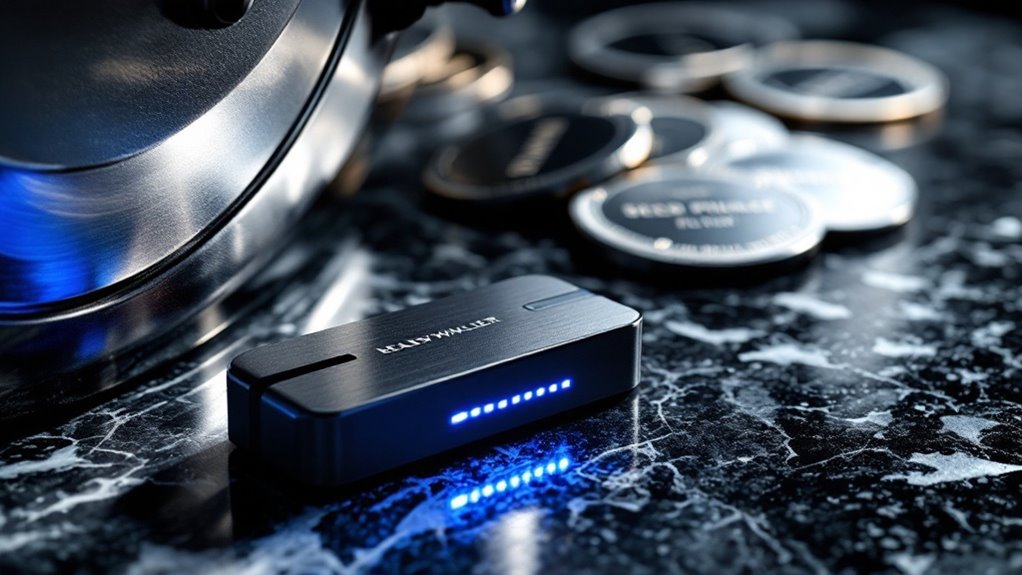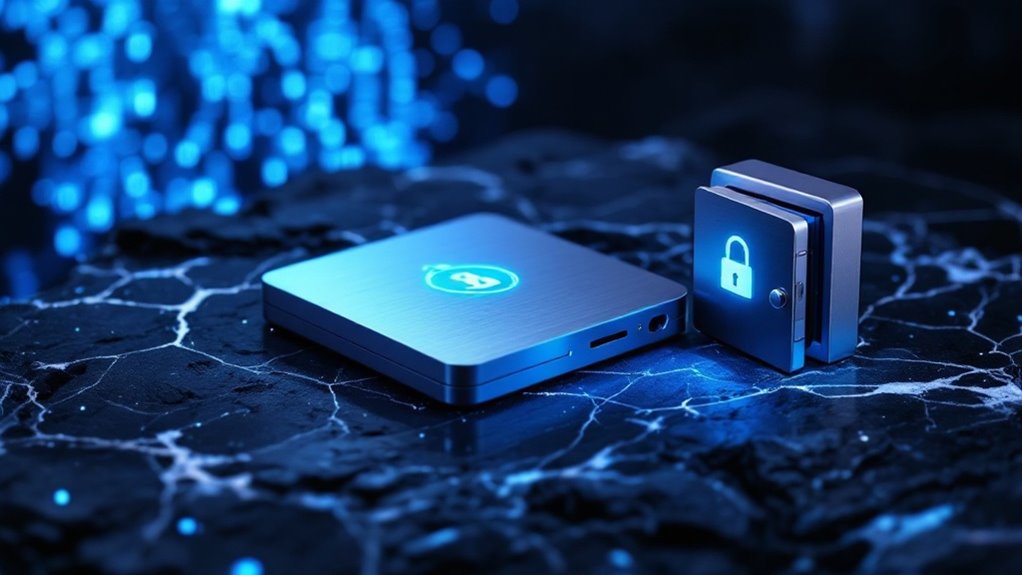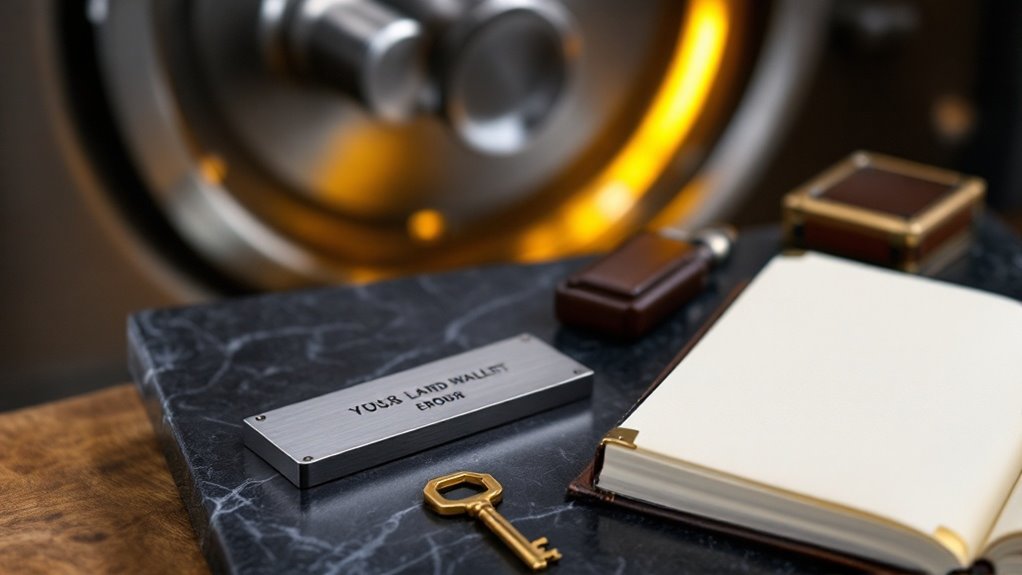Securing a crypto wallet demands both digital vigilance and old-school precautions. Hardware wallets provide fortress-like protection by keeping private keys offline, while hot wallets require constant attention like a restless guard dog. Smart investors engrave seed phrases on metal plates, maintain dedicated devices, and treat their digital wealth like a precious family heirloom. Regular security audits, encrypted connections, and a healthy dose of paranoia form the foundation of robust wallet protection. The journey to true crypto security unfolds through layers of strategic defense.

Every cryptocurrency investor faces a significant challenge: securing their digital wealth in an increasingly hostile online environment. Like a fortress protecting precious treasures, a well-secured crypto wallet stands as the last line of defense against digital bandits and sophisticated cyber threats. Multi-factor authentication provides an essential layer of protection against unauthorized access.
In the evolving landscape of digital assets, hardware wallets have emerged as the gold standard for security-conscious investors. These physical devices, no larger than a USB drive, keep private keys tucked safely away from the internet's prying eyes. Meanwhile, hot wallets serve as the digital equivalent of an everyday spending wallet – convenient but requiring constant vigilance, like carrying cash in a crowded marketplace. Leading manufacturers like Ledger and Trezor provide trusted solutions for offline storage. These cold storage solutions maintain full control over your assets while reducing dependency on cryptocurrency exchanges.
The sacred mantras of crypto security echo through online forums: never share private keys, protect seed phrases like ancient scrolls, and guard authentication credentials with the fervor of a medieval gatekeeper. Smart investors engrave their seed phrases on metal plates, splitting them between secure locations like modern-day treasure maps.
The digital age demands modern solutions, yet the principles remain as old as banking itself – trust no one, verify everything.
Device security forms another vital layer in this digital armor. Updated software and reliable antivirus protection serve as sentinels, while VPNs wrap transactions in an encrypted cloak. Some investors maintain dedicated devices for crypto transactions, treating them like digital vaults that never touch potentially compromised networks.
Transaction habits reveal the true measure of security consciousness. Careful investors perform small test transactions before large transfers, like testing the depth of water before diving in. They disconnect from decentralized applications immediately after use, leaving no digital breadcrumbs for potential attackers to follow.
The crypto security landscape never sleeps, constantly evolving with new threats and countermeasures. Regular audits of wallet activity, backup testing, and recovery planning form the backbone of a robust security strategy.
In this digital wild west, where fortunes can vanish with a single mistake, the most successful investors blend paranoid vigilance with methodical precision, creating an impenetrable shield around their digital assets.
Frequently Asked Questions
What Happens to My Crypto if I Lose My Hardware Wallet?
If someone loses their hardware wallet, their cryptocurrency remains safely stored on the blockchain. Using their recovery phrase, they can restore complete access to their funds through a new hardware wallet or compatible device.
Can Someone Hack My Wallet if They Know My Email Address?
Email address alone cannot provide direct access to hack a crypto wallet. However, attackers may use it for phishing attempts or social engineering. Strong security measures like 2FA and unique passwords protect against such threats.
Should I Store My Recovery Phrase Digitally or Only on Paper?
Recovery phrases should never be stored digitally due to hacking risks. Paper storage in secure locations, preferably with multiple copies, remains the safest approach despite physical vulnerabilities. Metal backups offer additional durability.
How Often Should I Change My Wallet's Password for Maximum Security?
Regular password changes aren't necessary unless compromise is suspected. Instead, focus on maintaining a strong, unique password with 2FA enabled. Change immediately if security concerns arise or suspicious activity is detected.
Is It Safe to Share My Public Key With Others?
Sharing a public key is safe and necessary for receiving cryptocurrency transactions. It cannot be used to access funds, similar to sharing a bank account number, though privacy considerations should be noted.









